SUEZ site-seeing | Part 20 | Warwick collections round and new recycling trials
25th November 2018
Posted by Dr Adam Read.
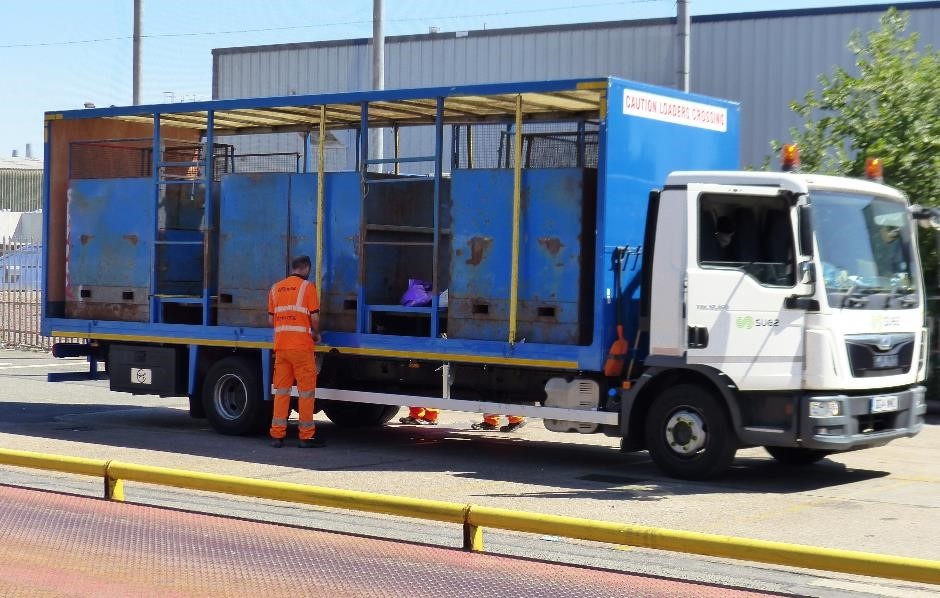
The kerbside stillage vehicle showcasing the compartments used to keep target materials separate
I was fortunate to use an unexpected free afternoon on my way back from a workshop in Bristol, to check out our Warwick depot. I had been wanting to get an overview of what we are doing with the contract that is closest to the place that I call home.
Collection contract
SUEZ first won the collections contract with Warwick District Council back in 2008 (a 5 year contract for refuse, recycling and streets cleaning) and in 2013 we successfully retained the contract, for the collections activities, with the street cleaning contract being let independently to help drive down costs and spread the authority’s risk across two major service providers.
We have continued to deliver a high quality service, and overall the client has been happy. The contract is for the servicing of 60,000 households but with ongoing and rapid new housing development in Warwick and Kenilworth in particular we will need to add additional crew to the team over the coming years.
The recycling collection service is ‘source segregation’, however it is different to our high profile service in East Devon as the crew use more traditional stillage vehicles with limited payloads of approximately one tonne. However, the dry recycling rate has been consistent between 54 and 55% over the last two years, which is pretty good.
Annually we handle 9,000 tonnes of dry mixed recyclates – including 4,000 tonnes of card and mixed paper plus 3,000 tonnes of glass. Approximately 15,000 tonnes per year of food and green waste is collected separately, whilst 21,000 tonnes of residual waste is sent for energy recovery in Coventry. The recycling collected from the kerbside is delivered to the depot and bulked up (in mono-stream, meaning each material is separated) prior to onward delivery to a number of materials merchants. The recycling quality is OK, but as with many of our collection and materials contracts the fall in global commodity prices is taking its toll on income for all parties.
The crews are doing well, given an ageing fleet and expanding number of households, but I was fascinated by something that isn’t obvious at many of our depots across the country, a storage bay full of purple plastic bags, so I thought I should take a closer look!
Jacobs Douwe Egberts collection trial
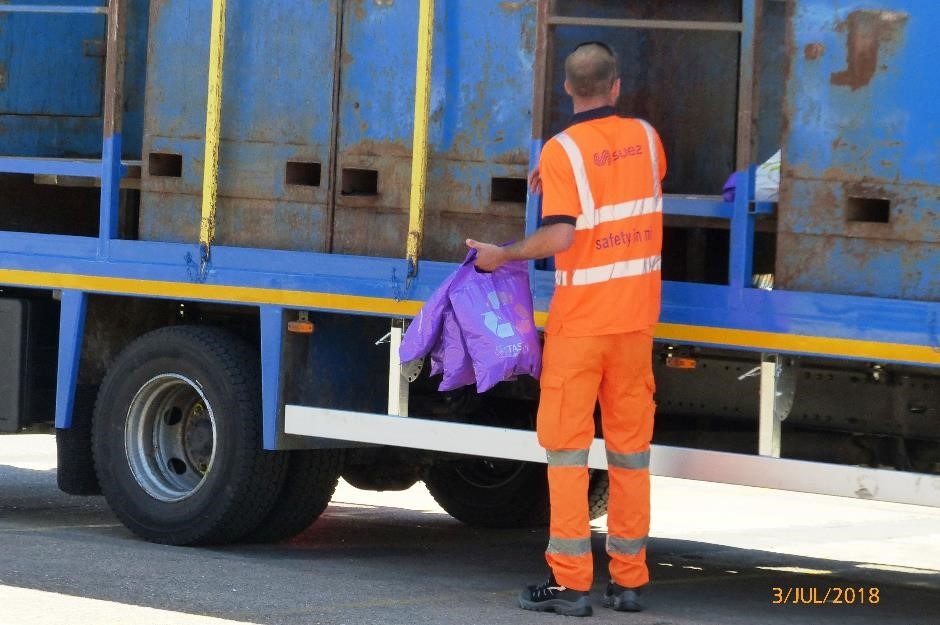
Unloading the coffee pods from the kerbside sort (stillage) vehicles
Warwick is home to one of our new innovative trial collection systems, where we are working in partnership with Jacobs Douwe Egberts on separately capturing their coffee pods (in the aforementioned purple plastic bags), testing the success of different routes for harvesting this valuable material which is a relatively new item in the residential bin!
The used coffee pods are collected in the purple bags at the kerbside, and when collected they are kept separate in a designated stillage compartment on the vehicle, or can be taken directly to any of the local household waste recycling centres (HWRCs) by residents. The six month trial came to an end in October 2018 and we will be sharing the findings in due course, but my immediate thought was ‘what happens to these pods’? They are bulked up on site at the Warwick depot and sent to our recycling facility in Darwen (near Blackburn) for sorting and preparation prior to onward treatment by our partner – TerraCycle. And that gave me an idea, let’s get up to Darwen for a closer look…
TerraCycle
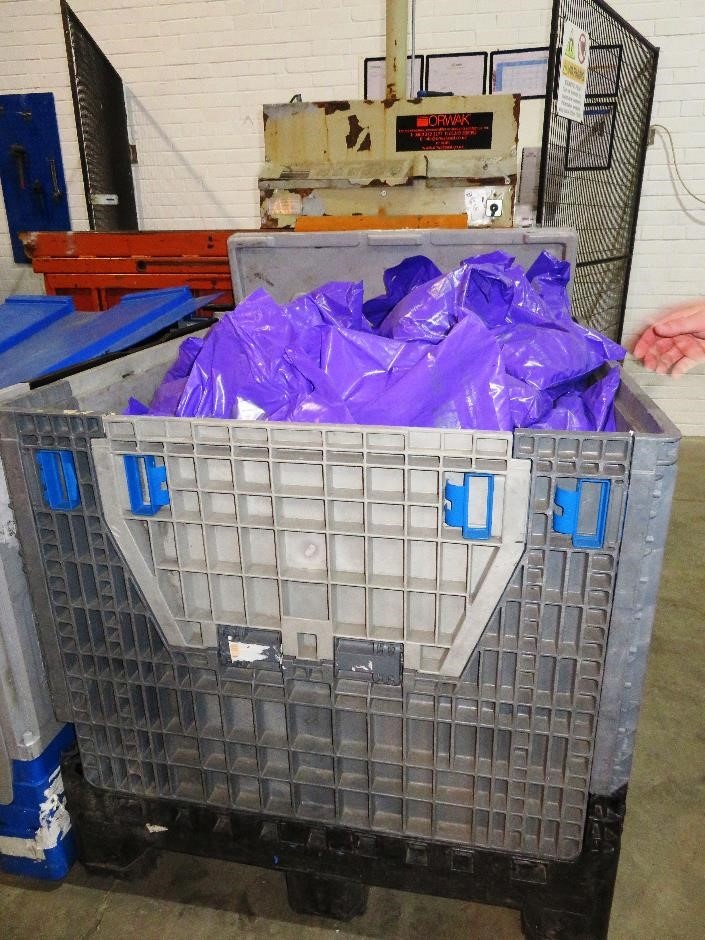
The purple bags arrive on site at Darwen and are then batched together with other bags until enough is ready for sorting and cleaning on the picking belt
Some of you may have heard of TerraCycle, the US-based company that SUEZ has entered into partnership with across Europe.
Together we have delivered the award winning world’s largest production run of recyclable bottles (P&G shampoo and washing-up liquid containers) made from post-consumer recycled (PCR) beach plastics, thanks to the support of thousands of volunteers and hundreds of non-government organisations (NGOs) collecting plastic waste found on beaches. All collected HDPE plastic is used to make the new Head & Shoulders shampoo bottles, whilst other collected rigid plastics, such as PET, LDPE, Polypopylene and PS are recycled and given a second life in items such as park benches and waste bins. In total, three tonnes of beach plastic pellets were used in the production of 170,000 Head & Shoulders shampoo bottles which went on sale in June 2017.
The collection programmes organised by TerraCycle have expanded to six continents in the last 12 months. The beach plastics collected by community volunteers are sent for cleaning and grinding into pellets at SUEZ’s facilities across Europe including the UK, and this is where our Darwen site comes in to the equation.
But, Terracyle aren’t only interested in beach plastics, they work with us and our partners on other niche products and packaging, from cigarette butts to coffee pods, and that is why a trip to Darwen was the obvious next step in my fact finding journey.
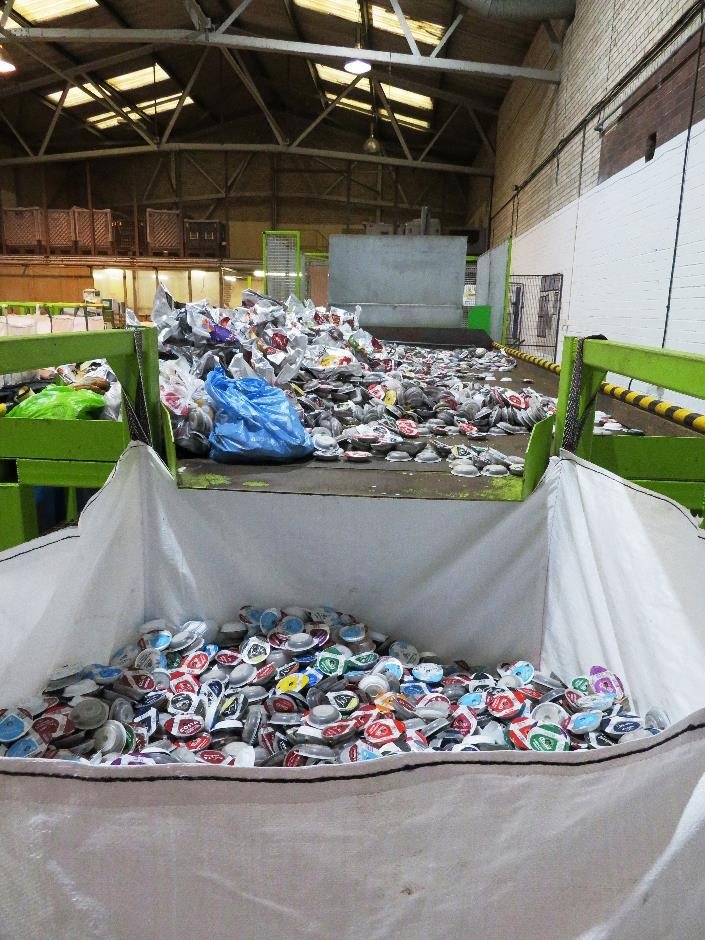
Pods being separated from other packaging to provide a clean stream for onward transportation
Darwen
A few months after I dropped in on the team at Warwick I had the opportunity to combine a trip up to Darwen to join a CEFLEX stakeholder meeting with a catch up with the site based team looking after those purple plastic bags.
The Darwen site has been in the SUEZ portfolio for the last 10 years and handles approximately 1,000 tonnes per week which is from a mix of local authority and local industrial and commercial customers. The site sorts residual waste into a feedstock suitable for our solid recovered fuel (SRF) process in Rugby, and wherever possible, our thermal treatment off takes. The site now does more shredding than baling, preferring to move lose materials to the next stage of treatment such as SRF or to an energy-from-waste facility (EfW). Any wood is segregated and sent to our Clifton Marsh wood shredding facility in Preston that creates biomass fuel for RWE Npower.
However, the highlight of the visit was the TerraCycle facility, an unassuming shed from the outside, but as they say its where the magic happens.
TerraCycle handle approximately 20 tonnes per month, that is received mostly by post, clean stream materials of a niche nature that aren’t collected in traditional systems such as cigarette butts, medical inhalers, biscuit wrappers, coffee pods etc. and segregating parts of the products (plastic and metal parts of the inhaler for example) for recycling. These materials are then bulked up for onward movement to reprocessing sites across Europe. This is helping the big brands (like P&G) to do their bit, helping their loyal customers to recycle their products and play their part in the circular economy, and I was suitably impressed with the processes and quality of the feedstocks.
On reflection
The Darwen visit helped me to close the loop on what happens with Warwick’s coffee pods, and it was great to see how they are being captured, quality checked and bulked up. I expect we will hear more of TerraCycle and these niche collections in the coming months, as consumers look to additional materials that they can recycle at home, and as brands look to drive home their market position and brand loyalty.
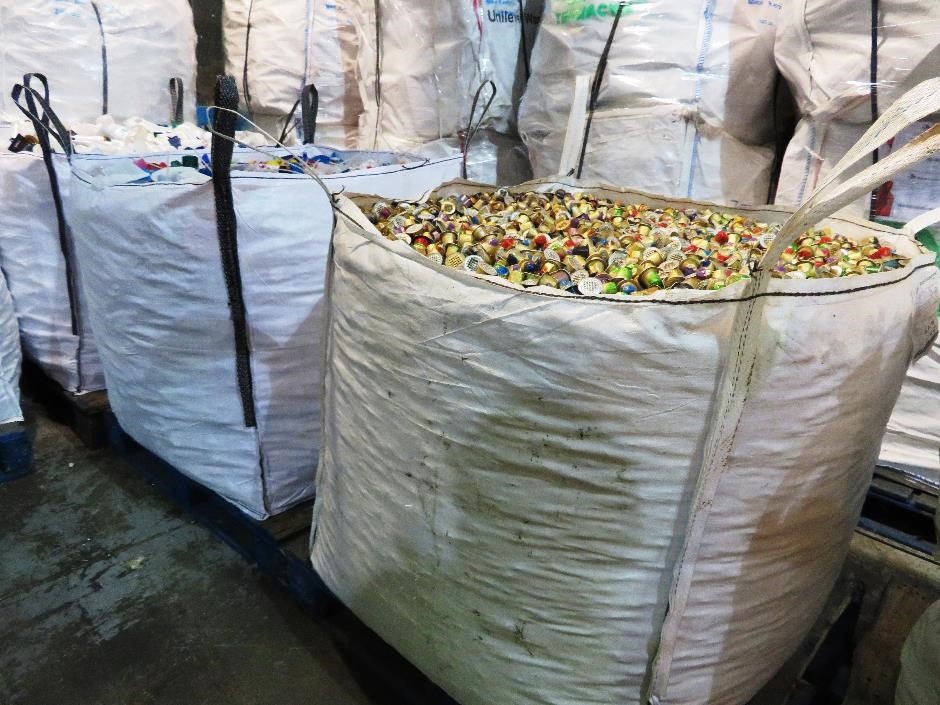
Other clean stream materials ready for onward shipment
This sounds positive for a site like Darwen that has already adapted to changes in contracts and services, from bulking of residual materials, to filtering feedstocks by quality and shredding as part of pre-treatment for EfW and SRF. It could also showcase how other sites in the SUEZ portfolio might develop in the coming years, providing more regional niche materials capture and processing.
I would like to thank the staff on site for showing me behind the scenes and talking me through the different feedstocks, processes and products. I always learn something new every time I visit one of or sites, and this one didn’t disappoint!
The site was exceptionally clean, well-maintained with a very engaged team who were more than willing to chat with me about the different elements of the site. They are a credit to the company, as the teams have been at all the sites I have visited.
As it stands I don’t have any more site visits planned, but I am open to invitations, and will no doubt revisit some sites over the coming 12 months, as we adapt our facilities, respond to changing market conditions, and as we continue to roll out our lean management systems across our portfolio.
Exciting times are upon us, so watch this space, and I will share some of our thinking about expected policy changes, market reforms and new performance targets that will be out for consultation in the winter.
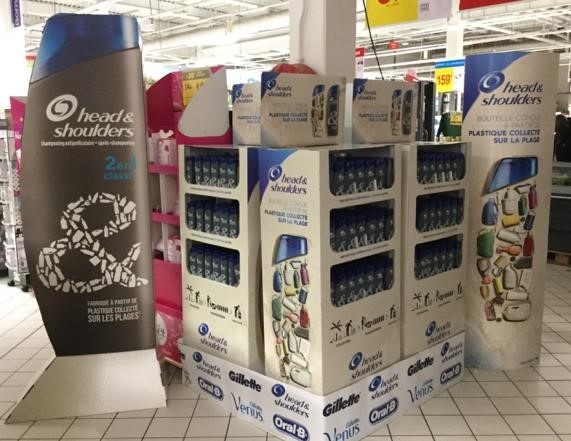
The recently launched recycled content Head & Shoulders shampoo bottle
- Coffee pod recycling
- energy-from-waste
- innovation
- Putting waste to good use
- recycling
- site tour
- TerraCycle

It’s interesting to see a number put on the (limited) mass of material that Terracycle receives each month.
This speaks volumes about the lack of effort partner brands put into alerting and encouraging consumers to engage with the various schemes.
The proliferation of new brands, notably Walkers Crisps and Pringles, that have engaged the services of Terracycle recently, show no inclination to buck this trend.
It must be tough on Terracycle to be repeatedly used as a PR stunt in this way, but we’re fortunate it exists at all; the world needs more companies prepared to tackle challenging waste streams and legislation to support them.